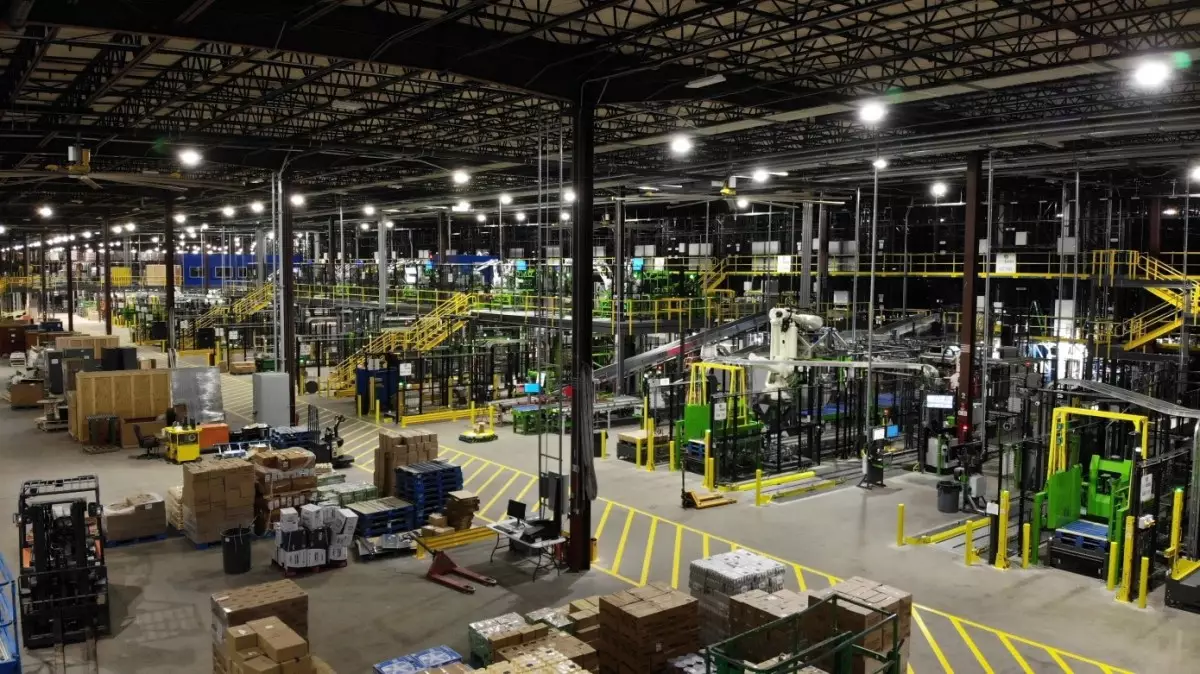Walmart’s recent arrangement with Symbotic signifies a transformative shift in the retail giant’s approach to automation. Through a deal announced on Tuesday, Symbotic, a robotics firm hailing from Massachusetts, will take the reins of Walmart’s automation business. With a financial commitment that includes a direct payment of $200 million and potential additional payment of $350 million contingent on specific conditions, this partnership marks a notable evolution in the long-standing relationship between these two companies.
Although the deal carries the framework of an acquisition, it has been described as more of a partnership, which suggests a deeper strategic collaboration rather than a simple transfer of ownership. This dynamic enhances Symbotic’s standing as a pivotal technology supplier to Walmart, giving the company increased influence in the automation landscape that is becoming crucial for retail operations. The financial implications of this partnership are significant, with Walmart investing a total of $520 million into Symbotic, including $230 million upon finalize the agreement.
By gaining control over the automation processes in Walmart’s pickup and delivery centers, Symbotic stands to capitalize on its existing technologies, designed to improve efficiency in warehousing and logistics. This type of integration is essential in a rapidly evolving retail environment where consumer demand for quick and efficient service only continues to rise.
The partnership is not occurring in isolation; it is layered with historical significance. Symbotic’s journey with Walmart began in 2017, where both entities embarked on a quest to enhance efficiency through automated systems in U.S. distribution centers. This ongoing collaboration has positioned Walmart as Symbotic’s “anchor” partner, which raises questions about how this relationship will impact other potential clients in the future.
The deal echoes Amazon’s acquisition of Kiva Systems back in 2012, a move that birthed Amazon Robotics. This historical parallel paints a picture of how transformative such partnerships can be, reshaping the dynamics of retail operations on a massive scale. However, unlike Amazon’s high-profile acquisition, Walmart’s new agreement with Symbotic seems to embrace a model that keeps the door open for future collaborations outside the Walmart ecosystem.
The timing of the announcement takes place amidst a politically charged environment, particularly as a second Trump administration looms, with expectations of a more lenient approach towards corporate mergers and acquisitions. This could create a favorable atmosphere for further technological partnerships across various industries.
On the other hand, regulatory scrutiny continues to plague high-stakes acquisitions in the tech and retail sectors, as demonstrated by Amazon’s failed bid for iRobot. Such challenges underline the necessity for companies to strategically navigate their growth while adhering to international regulations.
As the Symbotic deal is projected to close in the second quarter of 2025, it will be interesting to see how this partnership evolves, not only shaping Walmart’s operational strategies but also influencing the broader retail landscape as automation becomes an increasingly vital component in meeting consumer demands. The implications of this partnership may well resonate throughout the industry for years to come.

